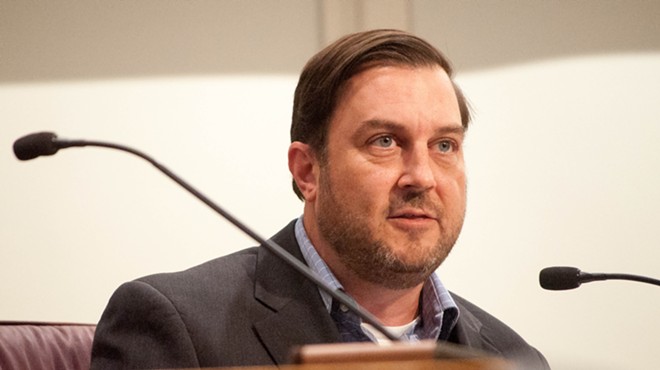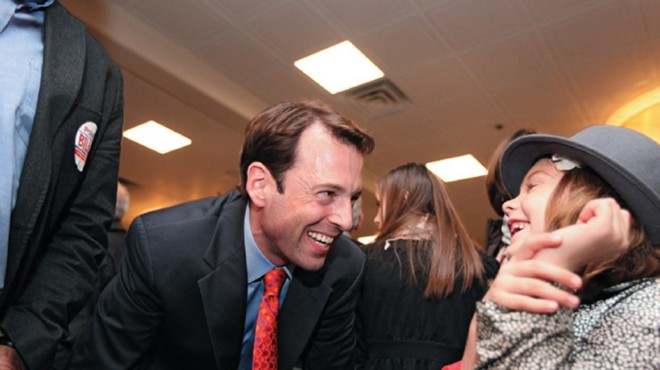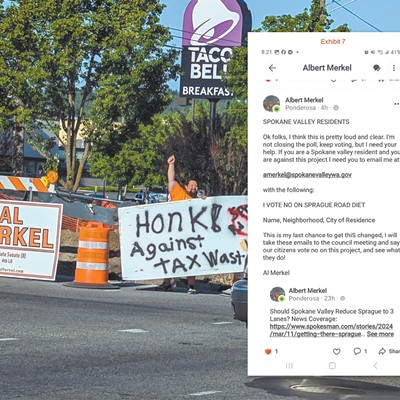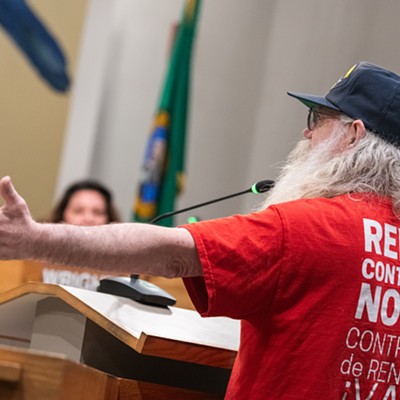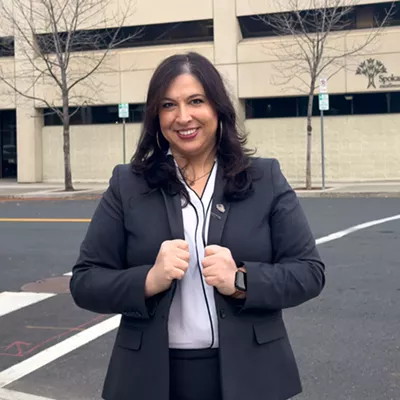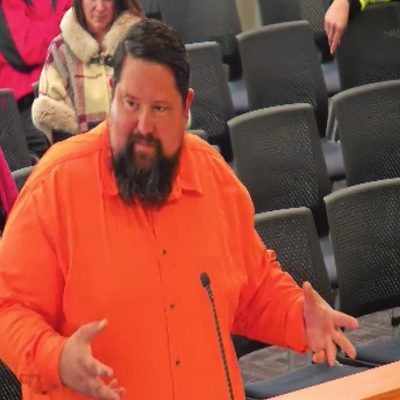
Candidate Andy Rathbun didn't even make it to the filing deadline before he dropped out of the mayoral race to run for City Council. But his brief presence means that each donor could spend a lot more money on the mayoral race.
So far, one candidate — former KXLY anchor Nadine Woodward — has benefited. But multiple candidates were unsure about what the rules are going forward. Both Rathbun and Woodward sent a letter to the city asking for clarity.
It all has to do, ironically, with an obscure part of the campaign finance ordinance that one of the remaining mayoral candidates — City Council President Ben Stuckart — wrote and passed into law.
As with a lot of complicated campaign finance stuff, it's easier if you take it step-by-step.
1. In 2017, City Council President Ben Stuckart passed a campaign law to limit the amount individuals could donate to candidates in certain races. While Washington state laws limit individuals to donating a total of $2,000, Stuckart's law slashed that in half for local races: In most cases, individuals can only donate a maximum of $1,000.
2. But Stuckart's law didn't put limits on how much of a candidate's own money they could spend.
3. So Stuckart's law also included a key caveat to level the playing field in case of self-funding candidates: If one candidate donates more than $11,500 to his or her own campaign, the local cap on donations disappears. All candidates can once again accept $2,000 from each donor.
4. And that's what happened when Andy Rathbun entered the race. He dumped in $29,010 of his own money, opening the gates for other candidates to take the full $2,000 donation.
5. But so far, other than Rathbun, only Woodward has been taking donations over $1,000. It's given her an extra $9,540, enough to let her edge past Stuckart to become the most well-funded candidate in the race.
6. Yet last month, before the official filing deadline, Rathbun announced that he'd be dropping out of the mayoral race to run for City Council instead.
7. So now everybody is trying to figure out what happens. Can Woodward and the other candidates keep taking $2,000, even though Rathbun dropped out? Or are they once again capped to the 1,000 dollar limit?
Rathbun tried to get some clarity.
"I sent a letter to the city of Spokane, trying to get an answer," Rathbun says.
"As of today’s date, I am in the final stages of winding down my campaign for mayor with the Washington Public Disclosure Commission (PDC). I no longer have $11,500 of my own funds in my mayoral account," Rathbun wrote, arguing that the limits should revert back to $1,000 now that he's gone. "I am not aware of any requirement for me to report the above, but I believe this is the right course of action in the spirit of full disclosure, transparency and the Spokane Fair Elections Code."
But Woodward, meanwhile, sent her own letter to the city's contracts and business standards compliance officer and the Spokane County Elections Auditor, arguing that Rathbun's interpretation was incorrect.
"The code does not contemplate returning to the previous limits under any circumstances. Given that a candidate leaving the race — either voluntarily, or as the result of a primary loss is common and predictable — had the City Council intended a limit reversion, the statute could have prescribed one," Woodward writes. "Campaign finance laws exist to ensure fairness, transparency, and consistency in our elections. Interpreting the statute in the way Mr. Rathbun suggests would create an untenable quagmire for candidates and contributors. It would also give a single candidate the ability to shape the financial prospects of all other candidates and have a dramatic impact on a race they do not
complete."
Not only that, Woodward writes, but some of Rathbun's donations had already been spent.
"That bell, once rung, cannot be unrung," Woodward writes, asking for guidance. "While I believe that the code is clear in its language and meaning, Mr. Rathbun’s publicly disseminated interpretation could create confusion and chaos."
As for the guy who wrote the law?
"My original intent was not for this to happen," Stuckart says. He says he wasn't planning on somebody getting in the race, putting up his own money, quickly withdrawing, but then having an impact the race going forward.
"I’m not getting in the middle of it," Stuckart says.
That's what makes this more than a simple campaign finance scuffle. It doesn't just have to do with how this race is funded, it has to do with one of the key issues: Stuckart's performance as a legislator.
Rathbun, for his part, says Stuckart's campaign finance ordinance raised more questions than answers. He says he tried to get clarity about these issues from the city the day after he dropped out of the race.
"All I got back from the city was, 'Go ask your attorney,'" Rathbun says. "My attorney doesn't know! No attorney knows."
UPDATE: Yesterday, the City of Spokane ruled that Woodward was right: Rathbun's brief presence in the race does mean that mayoral candidates can continue to raise $2,000 donations instead of being limited to $1,000 per person.
According to the city ruling, "subsequent changes to candidate status, including but not limited to withdrawal from race, change of campaign, or elimination through the primary election shall not reinstate this limit once waived."

